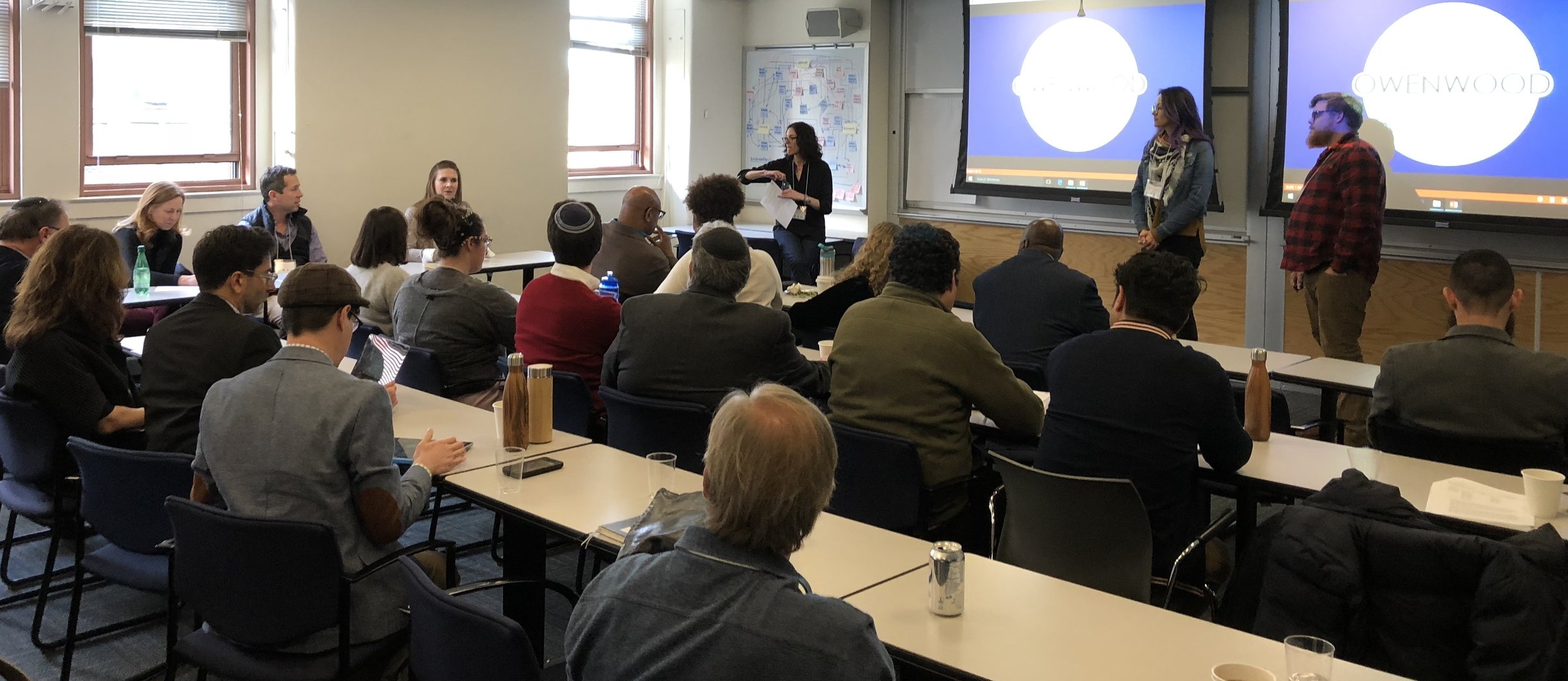By Maria Francesca French, Director of Innovative Training and Creative Strategies for Hatchery LA
I and my colleagues at Hatchery LA, along with Disciples of Christ leaders from Urban Mission and First Christian Church Oceanside, have just finished a 6-month incubation process in Spiritual Entrepreneurship led by Columbia University School of Business and Glean Incubator. We are grateful for the opportunity to participate in this incredible learning community and want to share three of our big “takeaways” from the experience.
1. We are not alone! DOC-affiliated programs (including Hatchery LA) made up 4 of the 10 programs or projects that participated in Columbia’s Spiritual Entrepreneurship class. What an “aha” experience it was to share the class with a diverse group of people with perspectives and faiths different from ours – yet, all who are seeking new ways of expressing and operationalizing their faith in a 21st Century reality. From the Jewish community, to the Lutherans and Methodists as well as a Muslim based project – it became quickly apparent that we share a common desire to be relevant to the populations we serve, and similar struggles to create new models of church or faith that are sustainable. It is enough of an issue for enough people that Columbia Business School developed this curriculum!
2. We can’t presuppose the questions that people are asking about God and community. We live in a radically different world than 50-, 20- or even 10-years ago. The questions about God and community that people are asking today are different than before. That means we must be intentional about first listening to those in our community and being open to new questions, and then developing responses that are relevant.
3. Love the problem, not the solution. This was the mantra of Columbia’s University’s Spiritual Entrepreneurship program director. Too often we are quick to jump to the solution without really understanding the problem – an understanding that would inform a successful outcome. So, rather than starting with the solution and working backwards, our attention was continuously drawn to the problem we were trying to solve. This allowed us to work on identifying the questions mentioned above, and then create and test and dissect and define and redefine thoughtful, strategic responses. For Hatchery LA, we are seeking to respond to the shifts in culture and the world, inviting others to engage new questions of god and new ways of engaging god that promote community, sustainability and viability.
If Spiritual Entrepreneurship sparks your interest, consider joining Hatchery LA in a Certificate program:
Certificate in Spiritual Entrepreneurship, Discovery Phase. This is a 12-week course preparing you for your journey toward spiritual innovation, the practice of it and the need for it. Move swiftly through theories of innovative theology, finance, technologies, culture, coupled with training on lean methodology and why this matters for the future of your context. Apply here.





